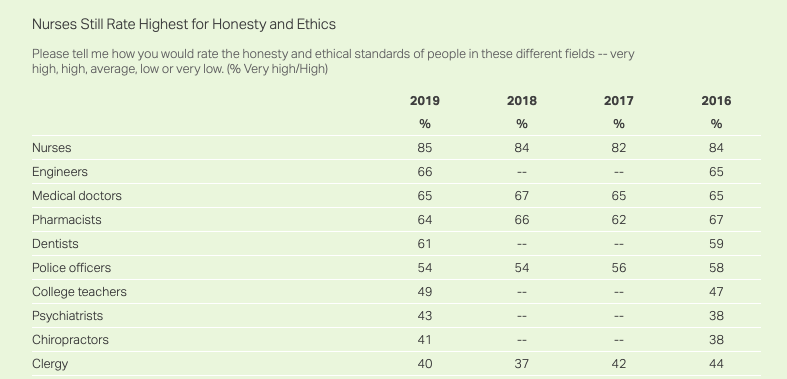3 Things You Need to Know Before Pursuing a Nursing Degree
Year after year, nurses are consistently rated as the number one most trusted professional. As a nurse, people equate your job with a high level of honesty and impeccable ethics. However, it takes a lot more than simply being trustworthy to thrive as a nurse.
For starters, since nursing is one of the most in-demand jobs in the healthcare industry, it requires a lot of training and skills development. The sheer number of training and career specialization options available to anyone aspiring to be a nurse can be overwhelming; and the idea of entering an industry with so many highly trained professionals can be intimidating.

All things considered, it pays to know exactly what lies ahead if you want to pursue a nursing degree. So, let’s take a look at the most important considerations for an aspiring nursing student:
1. Your Nursing Degree Must Set You Apart From Tough Competition
The healthcare industry is in great need of experienced and skilled nurses whose training, skills, and leadership can fill the ranks in preparation for an aging baby boomer population.
Further adding fuel to the impending nursing shortage fire is the fact that there are approximately 1 million registered nurses above the age of 50 today. In about 10-15 years, one-third of the currently estimated 2.7 million nursing workforce will reach retirement age.
According to the American Nurses Association (ANA), the industry will need around 1.13 million new nurses through 2022. However, while there is a clear demand for skilled nurses today, like you, numerous other students are trying to figure out how to be an RN or BSN to take advantage of this demand.
The kind of training you receive will therefore make a real difference in setting you apart from the competition. Considering that an Associate’s Degree in Nursing is your shortest route to becoming an RN, this means you can quickly add hospital experience to your academic training to boost your employability in the field.
2. Nursing Requires Immense Emotional Intelligence and Intellectual Prowess
Becoming a nurse takes a special type of person. Not only do you need to be skilled in scientific theory and practice, display leadership, and possess a high level of working knowledge in the field, you also need to have an exceptional capacity for compassion, empathy, emotional resilience, and resourcefulness.
A nurse’s ability to discern, evaluate, and manage their emotions in high-stress situations is vital for making hard clinical decisions and creating positive patient experiences.
A high level of emotional intelligence also allows nurses to adapt to a variety of situations and to better understand the needs of their patients. Combined with considerable intellectual and practical skills, a firm grasp of their emotions gives nurses better emotional resiliency that allows them to maintain empathy while avoiding emotional attachment.
3. There Are Multiple Avenues to Becoming a Nurse
There are numerous avenues you can take in becoming a nurse. It all boils down to finding the right nursing program. For example, if you decide to pursue an Associate’s Degree in Nursing, this will usually take about two years. Upon graduation, you will receive your RN license and have the full scope of practice of a registered nurse. Depending on the school you choose, you could also have the option to pursue coursework online.
A bachelor of science in nursing is another option, taking three to four years to complete. Similar to an associate’s degree, it gives you comprehensive training for the field, with additional training provided in leadership, critical care concepts, and professional development.
Other alternative paths to becoming a nurse include training to be a Licensed Practical Nurse (LPN), which can be a good way to get your foot in the door in the nursing field. You’ll receive training to work at the bedside, in clinics, and at other institutions where nurses are hired. LPNs do have some restrictions, however. For example, guidance and supervision are required for administering IV medication as an LPN. Nonetheless, it’s a great way to get started in nursing and can give you solid, hands-on experience.
You can also jumpstart your nursing career through a nurse apprenticeship offered by a hospital. This can supplement a nursing degree with practical skills while you earn money and complete your schooling.
The great thing about getting into nursing is that there are numerous options available depending on your goals, interests, and timeline. Keep these options in mind so you know what to expect as you begin your journey in this profession.
To learn more about HCI’s nursing programs, feel free to visit our website or get in touch with us














